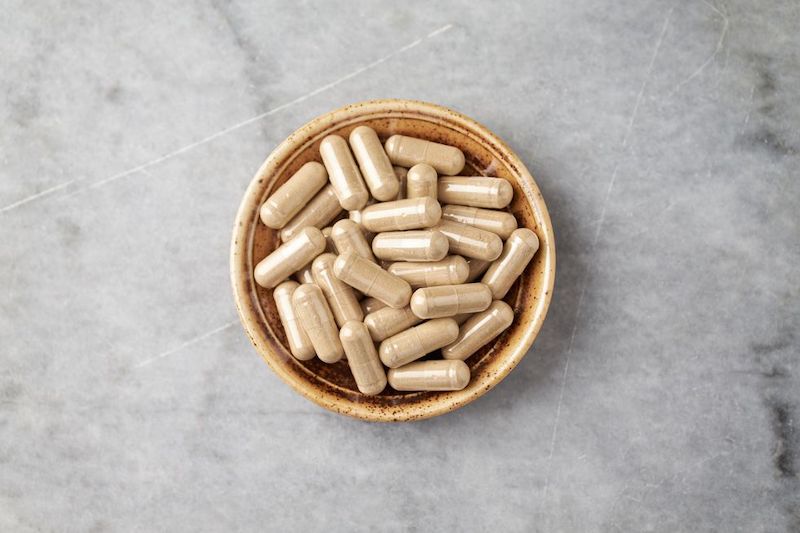Commonly known as Poison Gooseberry, Winter Cherry, or Indian Ginseng, Ashwagandha is a herb used in traditional medicine for treating conditions related to stress. Scientifically, it would be called an adaptogen. Found in parts of Africa, India and the Middle East, the orange-red fruit is used as a tonic for boosting energy and lowering tension and anxiety.
Ashwagandha roots are also used because they contain substances that may help to calm the brain, reduce edema, regulate blood pressure, and improve the immune system in general. It’s also useful for treating insomnia. All of these claims have led people to believe it could help with Covid19 symptoms, but this has not been proven.
If you would like to have a visual of what we are talking about, check out the latest Kroger weekly ads for Mason Natural Ashwagandha capsules or head over to Walmart where they have a whole range of Ashwagandha products in liquid, powder and capsule form. Amazon will also give you a good impression on the product assortment. You will notice Ashwagandha’s popularity by the number of brands that are available.
Let us get into more detail so that you can get a clearer understanding of this precious herb and its uses.
How does Ashwagandha work?
You take ashwagandha orally. Capsules are what we know and have now, but traditionally, the Indians especially, would chew the leaves and roots. This is known as Ayurvedic medicine. Ayurveda encourages various lifestyle modifications and natural remedies to regain a balance between the body, mind, spirit, and environment, based on the belief that disease is caused by an imbalance or stress in a person’s consciousness.
Internal cleansing is the first step in Ayurveda treatment, followed by a particular diet, herbal treatments, massage therapy, yoga, and meditation. Treatment aims to help the person by removing impurities, lowering symptoms, strengthening illness resistance, reducing anxiety, and increasing life harmony.

What are people using it for?
There are suggestions that the herb has anti-inflammatory and neuroprotective properties. Many health problems are caused by inflammation, and lowering inflammation helps protect the body from a number of ailments. People are using ashwagandha for the following ailments:
- Stress
- Fatigue
- Anxiety
- Diabetes
- Pain
- Arthritis
- Skin conditions
- Epilepsy
- Fitness
Each treatment may use a different part of the shrub, from the leaves to the seeds.
What are the health benefits?
In a study published in 2019, researchers discovered that consuming a daily dose of 240 milligrams (mg) of ashwagandha lowered stress levels considerably when compared to a placebo. Reduced levels of cortisol, a stress hormone, were among the results.
Ashwagandha may function as a pain reliever by inhibiting the transmission of pain signals through the central nervous system. As a result, some studies found it to be useful in treating rheumatoid arthritis and other types of arthritis.
In heart health, ashwagandha is used to prevent heart disease, lower high blood pressure and cholesterol, and to ease chest pain. However, there is very little clinical research in humans to back up these claims. Most studies for this herb have been done on animals.
Africans and Indians alike swear by the usefulness of this herb even in treating some types of cancer. Apparently it may be able to stop cancer cell growth, thus reducing the size of some tumors. Again, this has only been proven in animals.

Tests on Fitness Improvement
Ashwagandha may provide an extra boost in terms of fitness. According to a study published in the Journal of the International Society of Sports Nutrition, male participants who took 300 milligrams of ashwagandha root extract twice daily improved their muscular strength and developed larger chest and biceps muscle size after an eight-week resistance training program than those who did not.
One possible cause for the increase is that the supplement group saw a greater increase in testosterone levels, a hormone that is important for muscle development and strength.
Known side effects
There isn’t a real prescribed clinical dose for this medicine. Ashwagandha capsule dosages typically range from 250 to 1,500 mg. The herb is available in pill, powder, and liquid extract form. Small-to-medium doses are normally tolerated by most people. There hasn’t been enough long-term research to thoroughly investigate the potential adverse effects.
Large doses of ashwagandha (above 1,500mg) might cause stomach upset, diarrhea, nausea, and vomiting. It’s possible that this is caused by inflammation of the intestinal mucosa.
Final thoughts
Whilst Ayurvedic medicine is so sure about the healing properties of ashwagandha, there aren’t many clinical tests on humans to support their claims.Therefore, like any new herbal product, it is best to consult a healthcare practitioner regarding safety and dosage before consuming this supplement.


